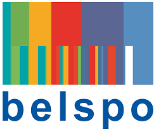The post-intensive care syndrome (PICS) is not specific to COVID-19. Regardless of the cause of the disease, survivors of critical illness may develop new or worse health problems following a stay in the intensive care unit (ICU). The concept of “Post-Intensive Care Syndrome” (PICS) is defined as “new or worsening impairments in physical, cognitive, or mental health status arising after critical illness and persisting beyond acute care hospitalisation”.
This study proposes strategies at ICU level in Belgium to prevent the occurrence of PICS by:
- Interventions that prevent/limit the occurrence of PICS and its related long term outcomes
- A brief overview of the current knowledge on risk factors for the development of PICS
- Identification of the (organisational) barriers and facilitators to prevent PICS
The full report is available in English: https://kce.fgov.be/sites/default/files/2023-01/KCE_364_Prevention_PICS_Report.pdf
The summary in French: https://kce.fgov.be/fr/prevention-du-syndrome-post-soins-intensifs-pics
The summary in Dutch: https://kce.fgov.be/nl/preventie-van-het-post-intensive-care-syndroom-pics

